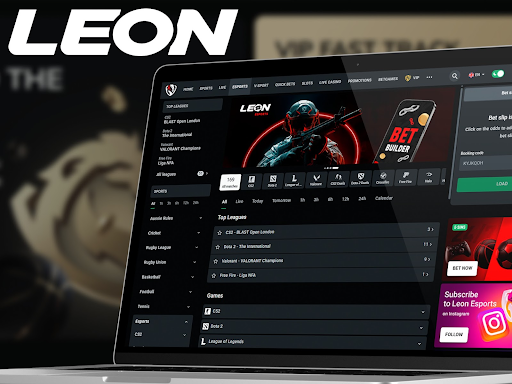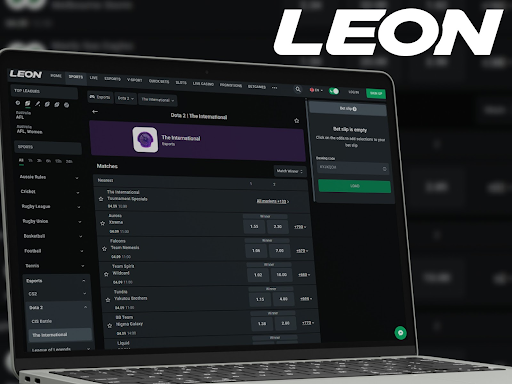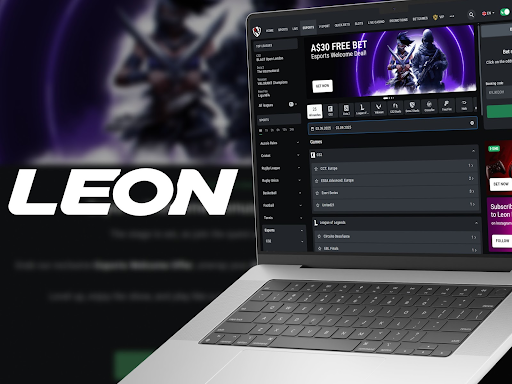
In the last ten years, esports has gone from being a niche interest to a popular form of entertainment and competition. In Australia, this growth has been nothing short of amazing. It has been fueled by a dedicated player base, better infrastructure, and the rise of competitive gaming around the world. The country is becoming a serious player on the world scene with big tournaments, professional teams, and new betting sites likeLeon.
A Brief History of Esports in Australia
Esports in Australia started to get popular in the late 2000s, mostly because of tiny LAN events and competitions that were run by fans. Counter-Strike, StarCraft II, and Dota 2 were among of the first games to build dedicated communities. As broadband speeds got faster and streaming sites like Twitch became popular, it became easier for Aussie players to reach worldwide contests and spectators.
By the mid-2010s, professional organisations began investing in the local scene, and Australian teams started competing in overseas events. This era also saw the rise of high-profile events such as the Melbourne Esports Open, which drew thousands of fans and brought esports into the mainstream consciousness.
Key Esports Teams in Australia
Australia’s esports scene has produced several highly competitive teams that have made their mark both locally and internationally. These organizations not only compete in major tournaments but also foster new talent, helping the industry grow year by year.
1. Renegades
Originally founded in North America, Renegades has a strong Australian division that competes in popular games like CS:GO and Valorant. Known for aggressive playstyles and strategic depth, the team has represented Australia in numerous international competitions.
2. Chiefs Esports Club
One of the oldest and most respected esports organizations in the country, Chiefs dominate in games such as League of Legends, CS:GO, and Rocket League. Their focus on player development and community engagement has helped them maintain a loyal fanbase.
3. ORDER
Based in Melbourne, ORDER has quickly risen to prominence with squads in Valorant, League of Legends, and other titles. Their success is built on recruiting top-tier talent and providing world-class training facilities.
4. Mindfreak
Specializing in FPS games, particularly Call of Duty, Mindfreak has represented Australia at multiple world championships. The organization is known for its discipline and consistent high-level performance.
Major Esports Tournaments in Australia
Australia hosts a growing number of high-profile esports events that attract both local and international players and fans. These tournaments play a crucial role in developing the competitive scene and providing opportunities for Australian teams to showcase their skills on the world stage.
- Melbourne Esports Open (MEO)
One of the largest and most popular gaming festivals in the region, the Melbourne Esports Open combines live tournaments across multiple games with interactive fan experiences. It attracts thousands of attendees and offers substantial prize pools in games like League of Legends, Fortnite, CS:GO, and Valorant. The event also features cosplay competitions, panel discussions, and meet-and-greets with professional players.
- ESL ANZ Championship
ESL Australia hosts the ANZ Championship, a series of online and offline tournaments covering popular titles such as Counter-Strike 2, Dota 2, and StarCraft II. The championship acts as a key competitive platform for players in Australia and New Zealand, with winners often earning spots in international ESL events. It’s widely recognized for its professional production quality and structured competitive formats.
- LCO (League of Legends Circuit Oceania)
Until its closure in 2023, the LCO was the premier League of Legends competition for Australia and New Zealand. It provided a pathway for top teams to qualify for global events like the World Championship. The LCO featured a regular season followed by playoffs and was a crucial platform for talent development.
- Fortress Melbourne
Home to the Southern Hemisphere’s largest dedicated esports arena, Fortress Melbourne hosts numerous tournaments and leagues throughout the year. From amateur qualifiers to professional showdowns, the venue supports a variety of esports titles and offers players world-class facilities.
- Other Regional and University Competitions
Beyond major events, Australia supports a vibrant grassroots scene. University leagues, high school esports programs, and corporate-sponsored competitions like the Corporate Esports League help foster emerging talent and build community engagement.
Trends Shaping the Future of Australian Esports

The Australian esports scene is evolving rapidly, driven by several key trends that promise to shape its growth and sustainability in the years ahead. Understanding these trends offers insight into where the industry is headed and how players, fans, and stakeholders can benefit.
Increased Investment from Betting and Gaming Companies
The intersection of esports and betting continues to deepen in Australia. A prime example is the innovative partnership between Leonbet and Oddin.gg, which leverages AI-powered odds and real-time data to deliver dynamic live betting markets. This integration not only enhances the betting experience but also signals a broader trend of traditional gaming companies recognizing esports’ commercial potential. As esports viewership rises, more betting operators are expected to launch specialized markets tailored to popular titles, creating new revenue streams and attracting diverse audiences.
University Esports Programs
Academic institutions across Australia are investing heavily in esports infrastructure. Universities now offer dedicated esports scholarships, on-campus training facilities, and structured competition opportunities. For example, programs at universities like RMIT and Queensland University of Technology provide students with coaching, academic support, and pathways into professional gaming or esports-related careers such as event management and game design. This educational support helps develop well-rounded players and nurtures local talent, ensuring long-term industry growth.
Expansion of Mobile Esports
Mobile esports is rapidly gaining traction in Australia, fueled by the increasing accessibility of smartphones and high-speed internet. Games like PUBG Mobile, Mobile Legends, and Free Fire have established competitive circuits that appeal especially to younger demographics who prefer gaming on the go. Mobile esports tournaments now feature prize pools comparable to traditional PC and console events, with dedicated local leagues and qualifiers. This shift not only broadens participation but also opens opportunities for sponsors and broadcasters to tap into a growing, mobile-first audience.
Mainstream Media Coverage
Esports is steadily entering mainstream media channels in Australia. Major sports networks such as Fox Sports and streaming platforms increasingly broadcast esports tournaments, bringing competitive gaming to a broader audience. This visibility helps legitimize esports as a professional sport and attracts casual viewers who might not have engaged with the scene before. Moreover, media coverage often includes expert analysis, player interviews, and community features, enriching the fan experience and boosting engagement.
Cross-Industry Collaborations
Esports is no longer confined to gaming alone; it intersects with fashion, technology, and entertainment industries. Australian esports organizations collaborate with fashion brands to launch merchandise and apparel lines, expanding their cultural footprint. Tech companies invest in developing cutting-edge training tools, performance analytics, and broadcasting innovations that enhance gameplay and viewer experiences. Additionally, crossover events with music festivals and pop culture conventions help esports reach wider, more diverse audiences, increasing both visibility and revenue.
Popular Esports Titles in the Competitive Scene
The Australian esports landscape is shaped by a diverse range of games, each with its own passionate fan base and competitive ecosystem. The popularity of these titles often reflects global trends but also depends on local community engagement, availability of tournaments, and infrastructure support. Below are some of the most prominent esports games in Australia, with insights into why they stand out and key regional competitions associated with each.
Counter-Strike 2 (CS2)
CS2 remains one of the most popular esports titles in Australia due to its long-standing competitive history and tactical depth. Aussie teams like Renegades have earned international recognition, fostering a strong fan following. The ESL ANZ Championship regularly features CS2 as a marquee game, offering prize pools that attract top local and New Zealand teams. The game’s strategic gameplay and fast-paced matches make it ideal for both casual viewers and serious bettors.
League of Legends (LoL)
League of Legends boasts one of the largest esports communities globally and in Australia. The game’s popularity stems from its strategic complexity and frequent updates that keep the meta fresh. Australian players compete in the League of Legends Circuit Oceania (LCO), which until recently served as the main pathway for teams aspiring to enter international tournaments like the World Championship. Despite LCO’s closure in 2023, local leagues and amateur circuits continue to thrive, maintaining high player participation and viewership.
Dota 2
Known for its intricate gameplay and massive international prize pools, Dota 2 attracts a dedicated group of Australian players and fans. Local qualifiers for international events such as The International regularly take place online, providing opportunities for emerging talent. The complexity and teamwork required make Dota 2 a staple in Australia’s esports offerings, with community events helping to sustain interest between major tournaments.
Valorant
As a newer entry to the competitive scene, Valorant has quickly grown in popularity in Australia. Combining precise gunplay with unique character abilities, it offers a fresh twist on tactical shooters. Teams like ORDER have made notable strides, competing in regional and international events. Valorant’s developer-supported tournaments and grassroots competitions encourage new players to get involved, helping to expand the local scene rapidly.
Overwatch 2
Overwatch 2 continues to captivate players with its hero-based team battles and fast-paced action. Australian teams participate in regional qualifiers and global tournaments, with community support through streaming and local events. The game’s emphasis on teamwork and diverse character roles makes it a popular choice for both competitive players and viewers seeking dynamic gameplay.
Fortnite
Popular particularly among younger gamers, Fortnite combines building mechanics with battle royale gameplay. Its huge prize pools and accessible format have led to multiple Australian-hosted tournaments and qualifier events. The game’s fast-paced nature and frequent content updates keep the community engaged, and it also presents diverse betting opportunities on platforms like Leon, with wagers ranging from match winners to specific in-game achievements.
The Leon – Oddin.gg Partnership: Driving the Betting Side of Esports
In 2024, Leon announced a strategic partnership with Oddin.gg, a leading esports betting solutions provider. This collaboration aims to deliver a more immersive and data-driven betting experience for esports fans. Oddin.gg’s advanced AI-powered odds and live-stream integrations allow players to bet on a wide variety of in-game events in real-time.
For the Australian esports audience, this means greater engagement, more betting markets, and higher-quality coverage of tournaments. The partnership underscores the growing commercial appeal of esports in the region.
The Growth of Esports: A Global Phenomenon with Local Impact
Esports has transformed from a niche hobby into a multi-billion-dollar industry that attracts millions of fans worldwide. From massive international tournaments like The International for Dota 2 to regional competitions that bring together grassroots talent, the growth of esports shows no signs of slowing down. Streaming platforms such as Twitch and YouTube Gaming have made it possible for fans to watch their favorite teams and players compete in real-time, building communities that rival those of traditional sports.
In Australia, esports viewership and participation are steadily increasing. Young gamers are forming semi-professional and professional teams, competing not only locally but also in international circuits. This creates exciting opportunities for players, sponsors, and betting platforms, which can offer esports-focused betting markets for fans who want to engage with the matches in a more interactive way.
The Role of Streaming Platforms in Esports Growth in Australia

Streaming platforms have become one of the primary engines driving the growth of esports worldwide, and Australia is no exception. Platforms like Twitch, YouTube Gaming, and the emerging Kick have transformed esports from niche competitions into mainstream entertainment. They provide fans with real-time access to matches, player interactions, and exclusive behind-the-scenes content — all without geographical limitations.
Twitch: The Dominant Force
Twitch remains the most popular streaming service for Australian esports viewers. Professional teams, tournament organizers, and individual players all use Twitch to reach thousands of fans. Beyond just broadcasting matches, Twitch offers interactive features such as live chats, polls, and emotes that create a strong sense of community among viewers.
YouTube Gaming: Long-Form and Global Reach
While Twitch focuses on live engagement, YouTube Gaming has positioned itself as the hub for on-demand esports content. This includes full match replays, highlights, and documentary-style videos covering Aussie esports teams. YouTube’s algorithm and global accessibility help local Australian teams gain international exposure.
Kick: The Challenger Platform
Kick, a relatively new entrant, has begun to attract Australian streamers and esports content creators thanks to its more favorable revenue share model and fewer broadcasting restrictions. Although its esports footprint is still small, its rapid growth indicates that it could become a significant competitor in the near future.
Impact on the Esports Ecosystem
Streaming platforms do more than just broadcast games — they drive sponsorship deals, encourage fan engagement, and offer players alternative revenue streams. For Australian esports, this means better funding for teams, more professional production for tournaments, and a growing base of both local and international viewers.
Esports and Betting Regulations in Australia
Esports betting in Australia operates under a unique regulatory framework that blends elements of traditional sports wagering rules with emerging policies tailored for digital competitions. Unlike some regions where esports betting is still in a legal grey area, Australia has taken concrete steps to recognise it as a legitimate form of gambling, provided operators comply with the Interactive Gambling Act 2001 (IGA).
Under the IGA, licensed bookmakers can offer esports markets, but only on events that meet specific integrity and oversight standards. This means the competition must be well-structured, have verifiable results, and be free from conflicts of interest. Betting on underage competitions is strictly prohibited, reflecting broader responsible gambling commitments in the country.
In addition, each state and territory has its own regulatory authority — such as the Northern Territory Racing Commission or the New South Wales Liquor & Gaming — that issues licenses and oversees betting activities. Operators are required to implement robust anti-money laundering (AML) procedures, verify customer age, and ensure fair play monitoring, often through partnerships with integrity service providers.
For bettors, this framework offers a safer environment, with legal operators subject to regular audits and transparent dispute resolution processes. However, offshore betting sites that do not hold an Australian licence remain unregulated within the country, carrying inherent risks for players who choose them.
As esports continues to grow in popularity, Australian regulators are expected to further refine rules around match-fixing prevention, data protection, and the responsible marketing of betting products, ensuring that the sector evolves in a controlled and ethical way.
Conclusion
The growth of esports in Australia shows that the sector is dynamic and changing quickly, combining enthusiasm, professionalism, and new ideas. Australia is solidly establishing itself in the global esports arena with strong local teams, significant tournaments, growing grassroots initiatives, and more investment from industries like betting, as shown by partnerships like Leon and Oddin.gg. The future looks good for players, spectators, and people who work in the business. This is because of more media coverage, university programs, and new mobile esports. The Australian esports ecosystem will stay a safe, lively, and interesting place for competitive gaming and related entertainment as rules and regulations continue to develop.







